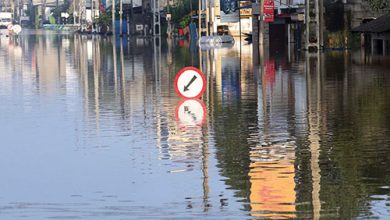THE ROVING DIPLOMAT
DECEMBER 2002
TRIBUTE series
THE SPECTRE OF TERRORISM
International terrorism is a threat to the internal security of countries
The international scene is facing serious problems with unexpected disasters such as the Moscow theatre hostage crisis, indiscriminate terrorist attacks and political tension between countries. These incidents have grave implications for the national security of nations and world peace in general.
Overshadowing these problems is the possibility that the US will invade Iraq because of the alleged failure of President Saddam Hussein to disclose information on Iraq’s armaments and weapons programme.
The key figure at the moment is UN Weapons Inspector Hans Blix. He is trying to frame a resolution that will enable UN weapons inspectors to enter Iraq in accordance with the wishes of UN Security Council members.
However, the problem is in reconciling this resolution with the US’ demand that it should lead to a rigorous investigation of the Iraqi weapons programme. US President George W. Bush has conveyed this to Blix but Iraq has objected to an investigation, claiming that it amounts to an attempt by America to impose its policy on the United Nations Security Council.
Western powers such as France, Germany and Russia are negotiating with the US to reach an agreement but it seems the Americans are more inclined to opt for unilateral action if the Security Council fails to act in the event Iraq violates the resolution.
However, the immediate fear is that Bush will act unilaterally in keeping with his recurrent threats.
US preparations to launch an attack are evidenced by the deployment of its heavy B-2 Stealth Bombers to the Indian Ocean island of Diego Garcia. In fact, this would be the first overseas combat mission by B-2 aircraft, which are said to have the ability to fly some 9,600 kilometres without refuelling.
Bush has North Korea also on his mind. He described it as being part of the ‘axis of evil’ when its uranium enrichment programme was disclosed. This disclosure was made during recent talks between US special envoy James Kelly and North Korean officials.
This admission amounts to a breach of the 1994 Agreed Framework under which North Korea promised nonproliferation in return for US aid. Pyongyang has also violated the IAEA’s NPT Safeguards Agreement and the Joint Declaration of the Denuclearization of the Korean Peninsula.
There is consternation on all sides as this comes at a time when initiatives were afoot for the normalisation of relations between North and South Korea.
Meanwhile, the Middle East peace process is living up to its reputation of being in a state of recurrent crisis. The latest is the breakdown of the coalition under Ariel Sharon due to a difference of opinion over the financing of some Jewish settlements in the West Bank.
Sharon is determined to proceed with his plan but coalition partners such as the Labour Party have demanded that these funds be diverted to the needs of the poor and elderly. Shimon Peres and four other ministers have resigned over this disagreement and shattered the coalition as a result.
Northern Ireland is facing yet another crisis after its government was suspended and Westminster reimposed direct rule. This is the fourth such suspension and the reason cited is alleged spying by the IRA. It seems that the basic cause for this breakdown is the opposition of Unionist members to the IRA and its continuing influence.
There’s fear that there will be a resurgence of violence, which could reduce Northern Ireland to the battlefield it was in the past. Many believe that any hope for a lasting settlement lies in the disarmament of militants on both sides. Head of Sinn Fein Gerry Adams also agreed that it’s up to Britain to ensure peace through a policy of demilitarisation.
South Asia, which has been the scene of tension in the recent past, is experiencing relative calm. This could be attributed to the preoccupation of Pakistan with its elections and India’s own concerns with polls in Kashmir.
The elections in Pakistan brought pro-Islamic parties to the forefront and placed President Pervez Musharraf in a quandary regarding his own position.
It was feared that he would attempt a coup to enable him to carry on as before but in view of the rivalry displayed by the political parties, his strategy may be to exploit that enmity and gain their support to uphold his position.
On the Indian side, a noteworthy development is the peaceful outcome of elections in Kashmir, which has resulted in the formation of a coalition government with Mufti Mohammad Sayeed being appointed Chief Minister.
US preparations to launch an attack are evidenced by the deployment of its heavy B-2 Stealth Bombers to the Indian Ocean island of Diego Garcia






